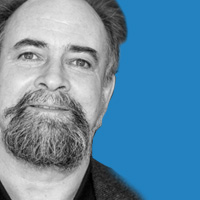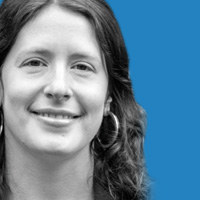


A global consensus is emerging that early childhood services, and the policies to develop them, can only be sustainable and beneficial for all children and all families once we take public responsibility and start building a coherent ‘competent system’ of supports around them. This article looks at what that means in practice in Ireland, based on best current international thinking.
According to an overused proverb of uncertain origin, it takes a village to raise a child. In our globalised times, the village extends to the entire planet. In 2018 the Department for Children and Youth Affairs (DCYA) launched the ambitious First 5: A Whole-of-Government Strategy for Babies, Young Children and Their Families (DCYA, 2018). The systemic perspective it adopts, while not explicitly stated, is very much in accordance with an emerging global consensus that early childhood services – and the policies to develop them – can only be sustainable and beneficial for all children and all families once we take public responsibility and start building a coherent ‘competent system’ of supports around them (Urban et al., 2012).
The authors of this article, based at the Early Childhood Research Centre (ECRC) at Dublin City University (DCU), together with an international team, work with global partners in policy, practice, and research to help bring about much-needed systems change.
Every year, the governments of the world’s leading economies gather to ‘develop global policies to address today’s most pressing challenges’ – the mission of the annual G20 summits.1 G20 coincides with the annual summit of T20, a global network of think tanks and research institutions that provide policy advice to the G20 governments.2 Since 2018, when Argentina held the G20 presidency, education has been identified as a key tool for addressing the challenges facing humanity on a complex planet with an uncertain future. Arguably most, if not all, critical issues –economy, democracy, peace, and our species’ collective survival – rest on the question of how we, as individuals and societies, educate our children and ourselves.
Education for all, too, is central to the Sustainable Development Goals (SDGs) that the global community aims to achieve by 2030,3 and it is enshrined as every child’s right in the UN Convention on the Rights of the Child and the EU Charter of Fundamental Rights. But education does not start with children entering primary school. Children learn from the day they are born, and how they encounter and experience the world matters. This is why early childhood services, including services for the youngest children, ought to be so much more than a ‘service’, ‘childcare’, and a commodity for working parents.
I (MU) have the privilege to lead a group of international experts4 who developed the early childhood policy briefs for T20 that were presented to the G20 summit in Argentina in 2018 and in Japan in 2019.5 We are currently drafting the policy brief for the 2020 summit that will be held in Riyadh, Saudi Arabia, in spring.
The key message of the 2018 policy brief draws on a strong body of international research evidence showing that early childhood education and care (ECEC) services, provided they are of high quality, benefit children, families, and society as a whole. Achieving that level of quality, however, requires coordinated, long-term strategy and collaboration of actors across all aspects of the education and care system. It requires a shared vision, an action plan, proper public investment, a qualified and well-paid workforce, and professional and democratic accountability. Probably most of all it requires courageous political leadership and effective governance. Hence the title of the policy brief: It takes more than a village. Effective early childhood development, education and care services require competent systems (Urban et al., 2018).
A competent system? This is where the global policy debate becomes relevant to the reality of Irish early childhood education. We can no longer ignore the fact that how we educate and care for young children disregards their rights, is unaffordable for families, is financially not viable for early childhood educators and service providers, and – as the Economic and Social Research Institute has confirmed – is damaging to the economy.6
[ctt template=”2″ link=”zcFIr” via=”no” ]Achieving a high level of quality requires a shared vision, an action plan, proper public investment, a qualified and well-paid workforce, and professional and democratic accountability.[/ctt]
Without doubt the government, and especially the Minister for Children and Youth Affairs, Katherine Zappone, are to be commended for their efforts to increase both the quality and funding of services. But as the minister rightly recognises, the sector has been neglected and critically underfunded for decades, and public expenditure lags far behind comparable countries in Europe and beyond. Measured in percentage of GDP, Ireland remains at the bottom of OECD countries and has a long way to go to even reach the OECD average of 0.8% GDP.
Analysis by our research team for the Department of Education and Skills in 2016 (Urban et al., 2017) points out that lack of funding is only one challenge facing the Irish ECEC sector. The lack of resources is exacerbated by systemic problems of governance at all levels of the early childhood system, by fragmentation and vested interests of groups competing for insufficient resources, and by over-reliance on a supposed ‘market’ in providing childcare and early childhood education. Our findings confirm what internal experts and international observers have consistently been reporting for years. The result is a dysfunctional system that, at a high cost for society, families, and the workforce, fails to provide best-quality care and education for all children.
Yes, we need substantial investment in early childhood education and care services in this country. But in order for more money to make a difference, we need systemic change: change in how services are seen and run. There is a need for a broad, public, and democratic debate about what – and who – early childhood services are for. At DCU ECRC we enter this debate from a clear understanding that early childhood education7 and care is (a) the right of each and every child, (b) a public service for all families, and (c) a public good and public responsibility.
The title of the policy brief we developed for the T20 summit in Tokyo, Japan, in May 2019 takes inspiration from a quote from Paulo Freire’s book Letters to Cristina (Freire, 1996):
The future isn’t something hidden in a corner. The future is something we build in the present.
The text builds on the analysis and recommendations of the 2018 document and extends them to a necessary reconceptualisation of early childhood programmes and services in the light of a global sustainability crisis. The arguments we lay out in the policy brief are based on the recognition that, on a global scale, distinctions between approaches to early childhood programmes in the Global South and Global North are no longer tenable.
[ctt template=”2″ link=”dchFH” via=”no” ]The sector (in Ireland) has been neglected and critically underfunded for decades, and public expenditure lags far behind comparable countries in Europe and beyond.[/ctt]
Broadly speaking, policymakers and international organisations have been promoting programmes for early childhood development (ECD) (focusing on health and nutrition) in countries in the Global South, and on early childhood education and care (ECEC) in countries in the Global North, representing different priorities for children in so-called developing and developed countries. But the distinction between ‘developing’ and ‘developed’ has become meaningless, and so has the artificial distinction between ECD and ECEC.
Even in the most affluent countries (e.g., in North America and Europe, including Ireland), children are growing up under what some, naively, used to call Third World conditions: persistent poverty, exclusion and inequality, violence, displacement and forced migration, hunger, and malnutrition (Social Justice Ireland, 2015). In both the Global South and the Global North, inequality within countries has become as damaging to children as inequality between countries. This, we argue, requires urgent reconceptualisation of what (and who) early childhood services are for, and what kind of services they should be providing.
That early childhood has been given a prominent place in the 2030 SDGs (Goal 4) is a welcome recognition of its global importance. However, most of the initiatives have focused on increasing access to, and participation in, ECD/ECEC programmes, as spelled out in SDG 4. Increased access and enrolment figures alone are not a sufficient measure for meaningful participation in high-quality programmes that are effective in making a positive difference in children’s lives. Even when more children access ECD/ECEC services, they enter and participate in very diverse and unequal programmes. Furthermore, little attention has been paid to questions of purpose and content of ECD/ECEC in the context of sustainability. ‘Yesterday’s solutions’ continue to be supported by policymakers and donors alike, and programmes still tend to focus on:
[ctt template=”2″ link=”67x4c” via=”no” ]In order for more money to make a difference, we need systemic change; change in how services are seen and run.[/ctt]
The 2019 policy brief was adopted by the T20 summit in May 2019; its key recommendation is included in the final communiqué that was received by G20 heads of state. In it we summarise the task (and possibility!) at hand:
Reconceptualise ECD/ECEC in the context of existential global crises and develop a roadmap to integrated early childhood development, education, and care for sustainable development. The approach to the initiative should be three-pronged:
It is promising to see that the recommendations developed in a collaboration of experts from Latin America, Africa, and Europe are being adopted at global policy level. However, action will have to be taken locally and this requires leadership by national governments.
Department for Children and Youth Affairs (DCYA) (2018) First 5. A Whole-of-Government Strategy for Babies, Young Children and Their Families 2019–2028. Dublin: Government of Ireland.
Freire, P. (1996) Letters to Cristina: Reflections on My Life and Work (tr. D. Macedo, Q. Macedo, and A. Oliveira). London; New York: Routledge.
Social Justice Ireland (2015) Poverty and Inequalities on the Rise. Just social models needed as the solution! A study of the impact of the crisis and austerity on people, with a special focus on Cyprus, Greece, Ireland, Italy, Portugal, Romania and Spain. Brussels: Caritas Europa.
Urban, M., Cardini, A., and Flórez Romero, R. (2018) It Takes More Than a Village. Effective Early Childhood Development, Education and Care Services Require Competent Systems. Buenos Aires. Retrieved from: https://t20argentina.org/publicacion/it-takes-more-than-a-village-effective-early-childhood-development-education-and-care-services-require-competent-systems/.
Urban, M., Cardini, A., Guevara, J., Okengo, L., and Floréz Romero, R. (2019) ‘Early childhood development education and care: The future is what we build today’. In: Japan International Cooperation Agency (ed.) 2030 Agenda for Sustainable Development, pp. 41–54. Tokyo: Japan International Cooperation Agency.
Urban, M., Robson, S., and Scacchi, V. (2017) Review of Occupational Role Profiles in Ireland in Early Childhood Education and Care. Dublin, Ireland. Retrieved from: www.education.ie/en/Publications/Education-Reports/Final-Review-of-Occupational-Role-Profiles-in-Early-Childhood-Education-and-Care.pdf.
Urban, M., Vandenbroeck, M., Van Laere, K., Lazzari, A., and Peeters, J. (2012) ‘Towards competent systems in early childhood education and care: Implications for policy and practice’, European Journal of Education, 47(4), 508–526. doi: 10.1111/ejed.12010
Copyright © Education Matters ® | Website Design by Artvaark Design